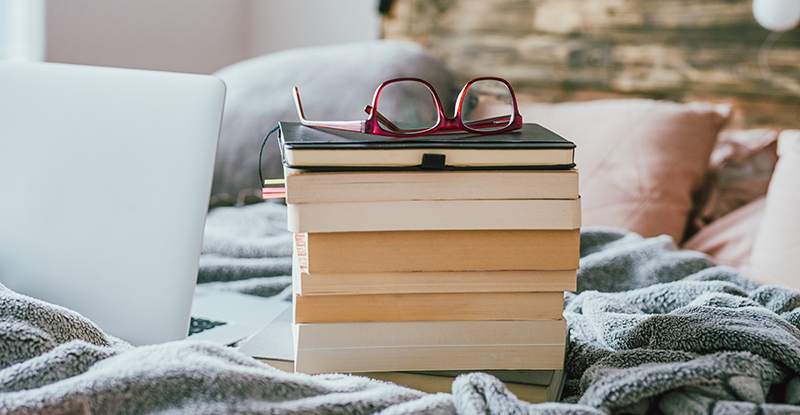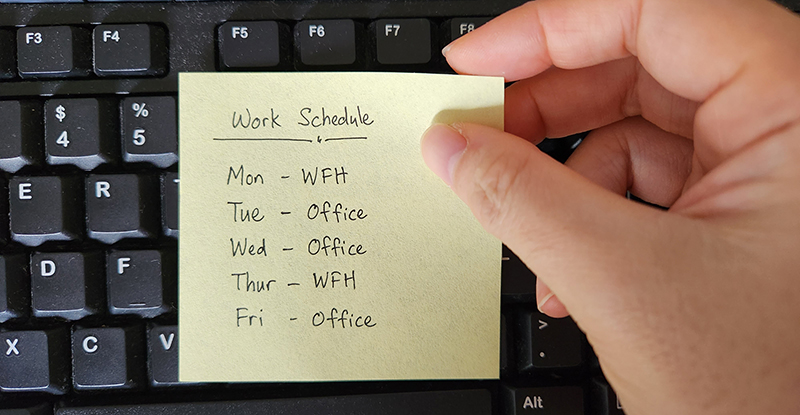
In our podcast episode, Steve Rio discusses with Vince Kanasoot, communications specialist with CPABC, how to achieve optimal sleep and downtime, and the impact this can have on your life. Part of our Coffee Chats with CPABC podcast series.
For many people, getting enough quality sleep and downtime can be challenging. But without it, we can’t get the mental and physical rest needed to be at our best in the workplace and in our daily lives.
Here are some common reasons why many people aren’t getting proper sleep and downtime, and some helpful tips.
What are some of the main causes preventing people from optimizing their sleep and downtime?
One of the primary causes preventing us from getting a good night’s sleep, is how much we try to fit into a single day and the way our work habits have changed so dramatically over the last couple of decades. The change in this past year, of course with COVID and everything else, has been particularly dramatic. But it’s part of a transition we've been making for decades now, into digital and asynchronous communications.
The pace of our work has sped up and so have our distractions. And the feeling that we can never catch up has also become more prevalent. Part of this is due to technology, and another part is because we’re living in a knowledge economy; meaning that we aren’t building physical things with our hands – we’re primarily pushing digital and communications projects.
Many people feel there's a never-ending list of things they should be doing. And that leads us to an always-on mentality with our work and in our lives. We end up sacrificing our chance to actually take breaks, to sit down, and eat a meal for 20 minutes without checking email, and to get the amount of sleep we need. We really need to look at this always-on mentality carefully.
How can we integrate downtime into our work day and why is it important?
Downtime can help you achieve high-performance rest, which happens not only during sleep but throughout the day as well. High-performance rest is one where you're truly able to unplug when you have five minutes between meetings or you have a short lunch break and can maybe get out for a walk.
High-performance rest means stepping away from screens. Maybe that's just looking out the window or stepping outside to get a few deep breaths of fresh air. It can be standing up and moving your body a little – anything that helps you shift gears away from your digital environment.
And it's incredible what is possible with just a five-minute reset. Five minutes of sitting and focusing on the breath – like a short meditation – can make a huge difference in how the day feels. Because what often happens when we're in a digital environment is that we get conditioned to being “always on”, especially when we have back-to-back meetings. And that's just not how our body and brain naturally work. Therefore, it’s key to carve out those five-minute breaks to step away from our technology.
How can we get better sleep?
The most important factor in the quality of our sleep is how consistent we are with when we go to bed and when we wake up. Our bodies love routine. Having a consistent sleep time is a key factor in our ability to get to sleep, because our body and brain will know that it's time. They will get used to the pattern, which also benefits the quality of the sleep we get throughout the night.
It’s also important to begin a wind-down routine about an hour before bed. And that means putting away your digital devices, as they project a lot of blue light that stimulates your brain and prevents sleep. Even if you have night mode turned on or you're wearing blue blocking glasses, as long as you're looking at a screen, there's a pretty high chance that you're consuming content, whether it's personal or work related, which causes your brain to keep thinking.
Even when you feel like you're relaxing by unplugging by checking your social media, you're consuming a lot of content at a very quick pace and that can be very taxing on the brain. It's also filling your brain with thoughts about what your friends and other people you follow are up to, and any associated questions or feelings you have.
As mentioned, our bodies love routines, so try to have a consistent routine for when you’re going to bed. It doesn't matter too much what those things are – whether it's making a cup of tea, reading a book, or having a shower or a bath – what really matters is consistency.
Also key to achieving good sleep, is making sure that our bed is only a place to rest and not to do any work or anything that can be intellectually stimulating or require a lot of your attention.
We don't do those things in bed because it's confusing for the brain. For example, we don’t want our brain to think, ‘Oh, well, I was just sitting on this bed for the last three hours working on an important document. Maybe I should stay alert.’ Instead, the bed should be a signal to the body and brain that it's time to wind down and go to sleep soon.
Steve Rio is a "Good Life" designer focused on human potential and consciousness. He is the CEO and co-founder of Nature of Work, a work/wellness program.



